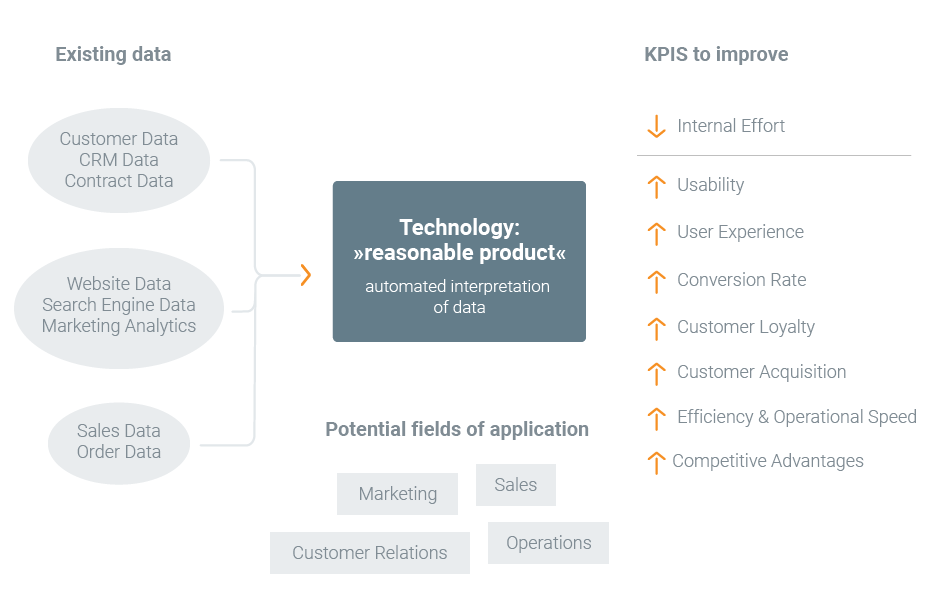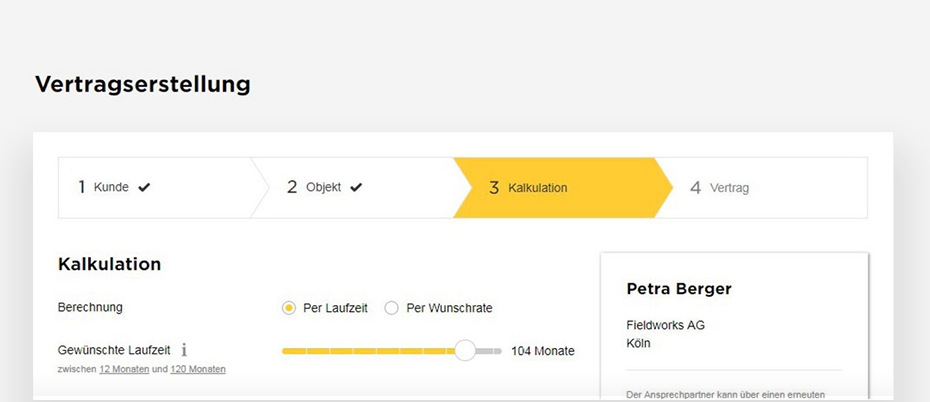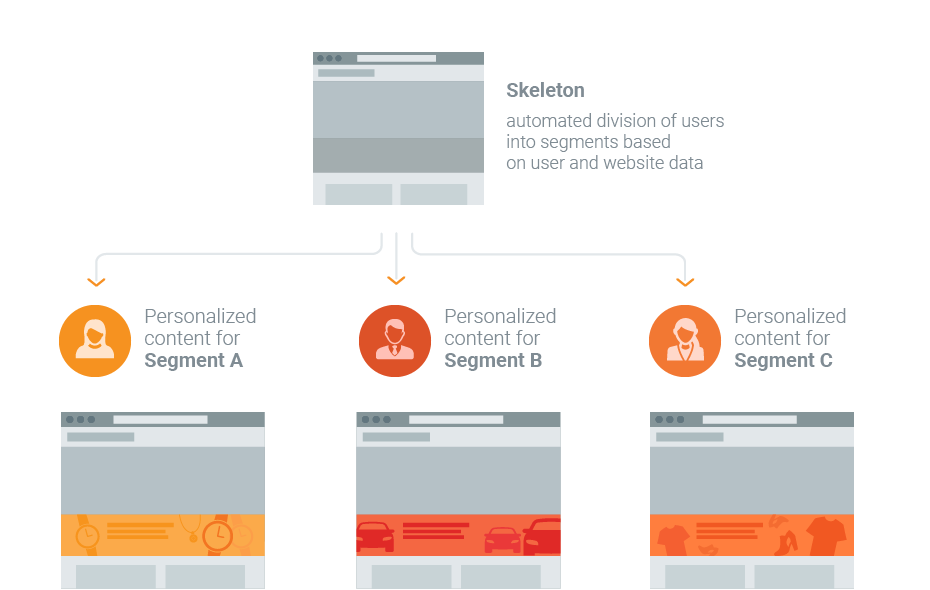Get in touch
One thing is clear: a digital business model is no longer simply a matter of choice. What is less clear is exactly what this means: What are the options? What can modern technologies achieve? And what do we really need? This article uses practical examples from various industries to show how companies can approach the complex topic of data-driven business.
Big data, data automation, data driven: In recent years, digital transformation has created a whole series of buzzwords around data and data usage. In this context, there is often a great deal of uncertainty for companies: opportunities, risks, modern technologies for implementation – the various aspects of the topic are becoming blurred. In most cases, companies lack a concrete picture of what is meant by data-driven business – or what benefits it can deliver in specific terms.
Is there a specific “master” product with which your company can begin its data-driven commerce efforts? Of course not. The secret is not to be distracted by the potential technological possibilities when initially developing your own digital strategy. After all, these do not always reflect what is relevant to your individual business environment. Instead, you should set out from the perspective of your own company: from the data you have in your possession. And from your own goals.

It is important that you ask yourself the following questions before you start planning a technology:
Examples of goals could be to simplify data management, reduce manual workloads, reach your target audience more directly or strengthen customer loyalty.
The good thing is: There is no lack of data in your company. The challenge lies in preparing and using it in such a way that you and your customers can profit – preferably with minimal effort, i.e. automatically. This does not mean that you have to start with a highly complex technological product. What you need is a “reasonable product”, in other words one that can be used sustainably for a manageable application.
Data-driven commerce offers no patent remedy that can be applied to every company. Ultimately, it’s about interpreting and using data in an automated way and deriving the greatest possible benefit from it. But what does that look like in practice? Below, we will present examples of “reasonable products” that companies have implemented or can implement as part of a data-driven business approach.
Efficient contract preparation for leasing movables: This goal was achieved by a financial services provider using a data-based approach. The complete digitalization of the application process makes it possible to calculate new offers and contracts automatically – based on existing contract data from existing or past projects. In addition, a telematic device records and analyzes movement data of the movable assets in order to adjust the leasing rates to the turnover on a daily basis based on utilization.
More about this project in the case study.

Its centralized commerce platform enables an automotive paint manufacturer to use order data to improve the customer experience: Based on the data, suitable forecasts are automatically made for each customer and recommendations are displayed. Thanks to centralized order acceptance via the digital platform, car brands can also achieve higher pricing discounts via collective orders for higher order volumes. The central billing reduces the billing effort on both sides.
In marketing, many companies already use data for improved targeting. In its data-driven business strategy, a telecommunications provider, for example, combines customer and contract data with website data on user behavior in order to automatically provide personalized offers. Users are automatically divided into segments, such as existing and new customers, and receive content that matches the segment, such as relevant offers.

The internal search of an online shop provides an excellent basis for machine learning – and thus for data-driven commerce: Companies can use the search queries to draw valuable conclusions about the needs and wishes of customers. For: An intelligent search automatically collects and analyzes the search entries and user behavior and derives useful suggestions for completion in the future. This is the kind of assistance that users are used to from Google and, to some extent, have come to expect. In this manner, future search results can be optimized automatically. In addition, suitable recommendations can be displayed out on the basis of different recommendation models.
These practical examples show: Companies that digitalize and automatically analyze and process their data can benefit considerably – regardless of their product, target groups and industry. It is important for companies to change their mindset and move toward a sustainable digital business model and to focus on their own goals.
With the right technologies, flexible and agile working methods, continuous maintenance and synchronization of data via a scalable system and an experienced implementation partner, you too can take the first steps toward data-driven business with a “reasonable product”.